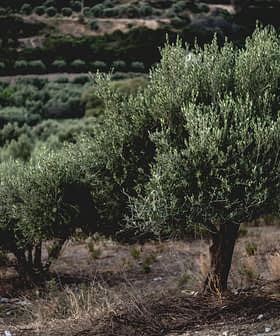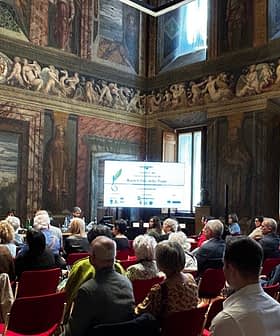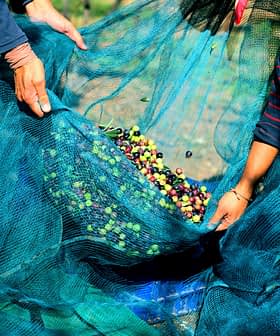“Identity theft doubles the worldwide market for companies that sell extra virgin olive fraudulently claiming to be ‘Made in Italy’ and who use the lever of origin as an ATM.”
The complaint by Massimo Gargano, chairman of the Italian olive oil consortium Unaprol, came at a parliamentary hearing of the Senate Agriculture Committee called by President sen. Paolo Scarpa Bonazza Buora to examine the problems of the olive oil market.
International consumption is increasing and the purchasing decisions are increasingly moving towards high-quality products including extra virgin, DOP and organic olive oils, but this positive trend does not explain the fall in the price of quality Italian olive oils, which reached its lowest levels of eleven years. “This situation is not caused by excess production”, Gargano said, because “the bad weather the last two years have reduced the supply of olive oil worldwide. ”
Recent Italian food industry data shows a strong 57% increase in turnover. The study was prepared from the analysis of financial information relating to a sample of 109 corporations with sales exceeding one million euros operating in the sector.
“There emerges a picture in contrast to the general context” Gargano said — who pointed out that increases in revenue have not brought wealth to the companies that actually produce and sell only quality extra virgin IOO% made in Italy. “In almost all cases, the operating profits and positive growth trends concerned companies outside of the agricultural sectors that have stolen wealth from certified Italian agriculture by impersonating Italian extra virgin olive oil with products that were in fact produced with other mixtures.”
In a dossier prepared for the parliamentary hearing, Unaprol called for more controls to ensure food safety and compliance with the rules of the market, further initiatives for the balance of power along the supply chain (especially in respect to retail), and more resources for communication to the consumer.
In particular, Unaprol seeks a new formula based on payments made directly to farmers participating in traceable supply chains. “These measures,” said Gargano “should be designed to achieve the European objectives in terms of regional development and agricultural market because you can not continue to fund with the money of foreign producers subject to the world of production agriculture.”
The stated objectives are to maintain the European model of agriculture in the context of preserving biodiversity and the agricultural landscape, food quality at fair prices for consumers, keeping people on the land by enhancing and diversifying production in rural areas, efficiency and competitiveness of the industry, maintaining a safety net for producers, reduction of pollution and production of renewable energy to address climate change:
.
Emergency measures for the olive sector “MADE IN ITALY” — Unaprol
The following are actions which are considered necessary to begin to support the Italian olive oil system, using the existing program tools, including the national olive plan, the planning of rural development, agricultural research, promotion and supply chain contracts:
- Initiate promptly the second tranche of funding had been allocated to the communication campaign on television made in Italy for olive oil. The first television series has contributed to a major shift in consumption towards products made in Italy;
- Recognition f high quality Italian extra virgin olive oil by the Ministry, including the specification of the quality of food and agricultural products based on the possession of the following: domestic origin, sensory and analytical parameters that are more restrictive than the conventional product;
- Guidelines for the use of an olive plan to refocus the priorities of the RDP on the aspect of competitiveness and environmental impact by ensuring support for those implementing new production facilities (new vineyard), modernization of the network of mills, including reuse of products (vegetation water and pomace);
- Review of existing legislation on water re-use of vegetation and virgin pomace improved so that they can be considered as special waste;
- Consequent strengthening of research, technological innovation and transfer of new technologies through new calls for research and those of Mipaaf MIUR and the immediate reorganization of the CRA oils;
- Completion of the existing legislation concerning the administration of the oil at outlets (bars, restaurants, catering);
- Completion of the Community rules on the proper nutrition in schools (Regg. 1913/06 – 697/09) through the consumption of fruit and vegetables in schools with the use of olive oil made in Italy for seasoning the provided vegetables;
- Providing clarification of the legislation calls for public canteens (schools, hospitals, etc.). The exclusive use of the products made in Italy with regard to the priorities of extra oil, DOP, organic and traceable made in Italy.
Contracts for supply chain
- Enlargement of the areas covered by the contracts of chain extending the legal basis of the Ministerial Decree 1 August 2003 Art. 1 paragraph 2 °;
- Opening of a new contract providing a supply chain between actions eligible for funding, even the purchase of physical assets to be reacquired in the hands of Italian brands sold to foreign companies or the repositioning and relaunch of Italian brands;
- Initiation of a technical study of management procedures and controls in relation to individuals under the new legislation referred to Reg (EC) 182/09.








